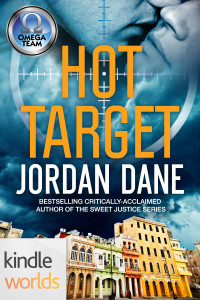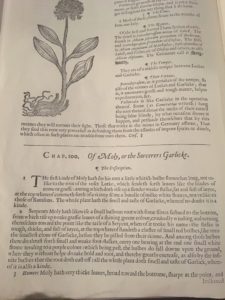Jordan Dane
@JordanDane

Every author has their own personal list of obstacles they have faced or are still confronting. Obstacles do not go away, no matter on what success level you are. These are mine, but I would like your input. Share your thoughts on my list or add to my list with experiences of your own.
1.) Perfectionism – Every one wants their work to be perfect. Perfection simply does not exist. Give yourself permission to write poorly. That’s the only way you will see improvement. Don’t judge your success by others or be envious of another writer’s success.That’s a waste of energy and can add stress. Find the internal motivation to improve and strive to be the best writer YOU can be.
2.) Lack of Productivity – Life gets in the way. Spouses, work commitments, children’s needs, etc. If writing is important, an aspiring author will squeeze out time for it. Motivational speaker Zig Ziglar (RIP) motivated me when he said he wrote his non-fiction book doing it a page a day. If you keep to a schedule like that, you will make progress and theoretically get to the end. Make it happen.
3.) Lack of Confidence – It’s hard to be driven with passion to write and yet not know if you can actually do it. It can feel impossible to write something and expose yourself to criticism by showing your work to someone else or to a fellow writers’ group, but the more you do it, and the more you study your craft, you will see improvement. Any confidence you have must come from within. Nurture it. It’s there. Make it grow.
4.) Listening to Naysayers – Everyone has advice on a topic they have no experience with. It’s rare that people who say “I’ve always wanted to write a novel” have actually even started one, much less finished one. Yet that doesn’t stop them from shelling our advice. Some advice I got was: write what you know, write a shorter story because it’s easier, write for a house that lists what they’re looking for in great detail (ie category romance) so you don’t have to think too hard. Surround yourself with positive people and those who support your writing endeavors.
5.) Putting Too Much Into Writing Contest Feedback – Generally I found contests to be a good experience. They got me noticed and looked good on my writer resume, but you have to take them with a grain of salt.
As I studied the craft of writing, I entered various national writing competitions to see how my work stacked up. These were mainly through the Romance Writers of America (RWA) and their many opportunities to compete. There was a rush when I received word that my entries were named a finalist. Even my first entry had some success and the first time I entered the Golden Heart contest for aspiring authors in the RWA, I was a finalist. These things can go to your head and you have to stay focused on your objectives. Good feedback and negative feedback can have an effect on you, just as good or negative reviews can. Keep things in perspective.
In contests you get lots of judges’ comments and editor/agent comments when you final, but you have to take whatever works for you and disregard the rest. You must develop a sense of your voice as a writer and not chase every suggestion, otherwise you will lose your instincts by constantly needing reassurance you’re on the right track.
6.) Taking Advice from Other Authors – We offer our views on TKZ, basically our opinions and what has worked for us about craft, for example. Some authors overly stress the importance of their opinion, especially at the local writer chapter level. I’ve attended local writer groups where someone who has never published, or even submitted a proposal, is giving out strict advice and members listen as if it’s gospel. Every author’s journey to publication is different. Success may not be totally involve skill, it might also be about LUCK. Be wary of people who give hard and fast advice, without being open-minded to alternatives.
7.) The “Rules of Writing” – This tags onto #6. Usually the authors who are biggest on hard and fast advice, they typically use words like “always” and “never” and speak in absolutes. The creative process is fluid and ever changing. Be daring and take risks with your writing. That’s how an author will stand out in the slush pile. You could have the idea for the next big thing. Go for it and believe and nurture your instincts.
8.) Agents & Editors – Rejection can sting
Editors – I’ve been blessed to have worked with some wonderful editors, those in the big publishing houses and those who work with indy authors to self-publish. But keep in mind, they are people who have no better crystal ball than you do about where this crazy publishing industry is going. They rely on authors to bring them ideas. If an editor sends you a rejection, it’s for the book you submitted and not a rejection of YOU as a person. Don’t take their rejection feedback personally, but keep an open mind about their criticism. When an industry professional gives you free advice, if you’re lucky enough to get a “good rejection letter” with feedback, respect their experience and consider it. In the end it is your decision to heed the advice or not.
Agents – Literary reps dole out similar advice, but they generally are looking for authors they feel will have a career and not just one project sold. They might be more critical for this reason. I submitted to my first agent 3-4 times and got rejected each time. When she finally saw something in my writing, it was because another of her clients recommended me. Don’t get discouraged. Again, rejection isn’t personal. It’s business.
9.) Chasing Writing Trends Can Be Distracting – In the course of my career, I’ve seen many authors who never finish a book because they are constantly entering contests for the first 25 pages or they are chasing trends to see what someone might like. Some of these authors had 40-50 started manuscripts. Crazy. FINISH THE BOOK. Believe in your project and see it through to the end. You’ll be like that dog in the animated movie, UP, that gets distracted with “Squirrel!” If you are an avid reader and a buyer of books, YOU are the market. Write what you want to read and believe in it. You could be the next big trend. As I said before, no one has a crystal ball on where this industry is headed. Push the envelope.
10.) Writing Different Genres Can Spread an Author Too Thin – I’ve tried writing different genres and I love doing this. The first step is to read a lot of books in the genre you want to tackle, but people will tell you, “Don’t write that. Why don’t you stick with romance, it’s what I read.” Whatever. I write cross genre stories or I attempt completely new genres to keep myself challenged. I don’t regret any of my decisions and thoroughly enjoy the challenge. One thing I will say, that I’ve learned from hard experiences, is that if you branch out from adult books into YA (Young Adult) books, you may struggle with branding and promo in a new arena with different readers. Joe Moore had an excellent post on Thurs for “What’s Your Brand?”
11.) Self-Publishing – Should I or Shouldn’t I? – This can be an obstacle for authors on whether they want to step out with either their back list books or their first novel. It takes work to self-publish – from developing the story, formatting the book for digital and print, developing a cover, writing your own book jacket synopsis, generating a marketing strategy and implementing it, etc. But I will say that the industry today is wide open with possibility because of self-publishing. I straddle the line between submitting to traditional houses and self-publishing so I do both, but the fact that we have options is a good thing.
12.) The Time Sucks of Promotion & Social Media – I love writing, but the business end of our industry is not my favorite thing. I struggle with doing it and am happiest when I’m writing, period. Promo and social media is a necessary evil and something every author must do, even if said author is pubbed by a big house. But I find it an ongoing obstacle. Plus all the online time, working on social media is a distraction from writing – a time suck. TKZ’s Clare Langley-Hawthorne had an excellent post on this topic called “Have You got Focus?” Everything in moderation, people.
For Discussion:
This is my list of the top obstacles I have experienced. What about you? Care to comment on my list or add your own challenges? Fire away!

My upcoming release is launching this month on Feb 18 – Hot Target – the first of three novellas in the new Omega Team series with Amazon Kindle Worlds and priced at a bargain of $1.99 ebook.
When Rafael reaches out to his sister for a job, Athena Matero—a founding member of the private security agency, the Omega Team—can’t help but be protective of her younger half brother. After a tragic hostage rescue and its aftermath, Rafael Matero turned into a solitary loner, only surfacing to fulfill his duties as team leader for an elite SWAT sniper unit with the Chicago Police. Athena decides to fast track his application by vetting him on the job—a mission to Havana Cuba to investigate a cold case murder.
But when the old murder is linked to the shadowy death of a powerful drug cartel leader, Rafael is burdened by a terrible secret from his past—and an unrelenting death wish—that puts him at dangerous odds with Athena and her team. He believes he’s beyond saving, but that doesn’t stop Jacquie Lyles from trying.
Jacquie sees something in Athena’s mysterious brother that touches her heart. Chivalrous and brave, Rafael is as rare as a unicorn in her life as techno computer geek and white hat hacker for the Omega Team. After she joins the team on its mission to Cuba, she uncovers Rafael’s shocking burden and it breaks her heart.
Rafael stands in the crosshairs of a vicious drug cartel—powerless to stop his fate—and his secret could put Athena and her team in the middle of a drug war.



 By the time we travelled to Bath I was ready for the next few gems, including a reference to a potential character in the Bath abbey and a visit to a charming town in the Cotswolds that had a small medieval church and graveyard that could totally be used in a future book.
By the time we travelled to Bath I was ready for the next few gems, including a reference to a potential character in the Bath abbey and a visit to a charming town in the Cotswolds that had a small medieval church and graveyard that could totally be used in a future book.


